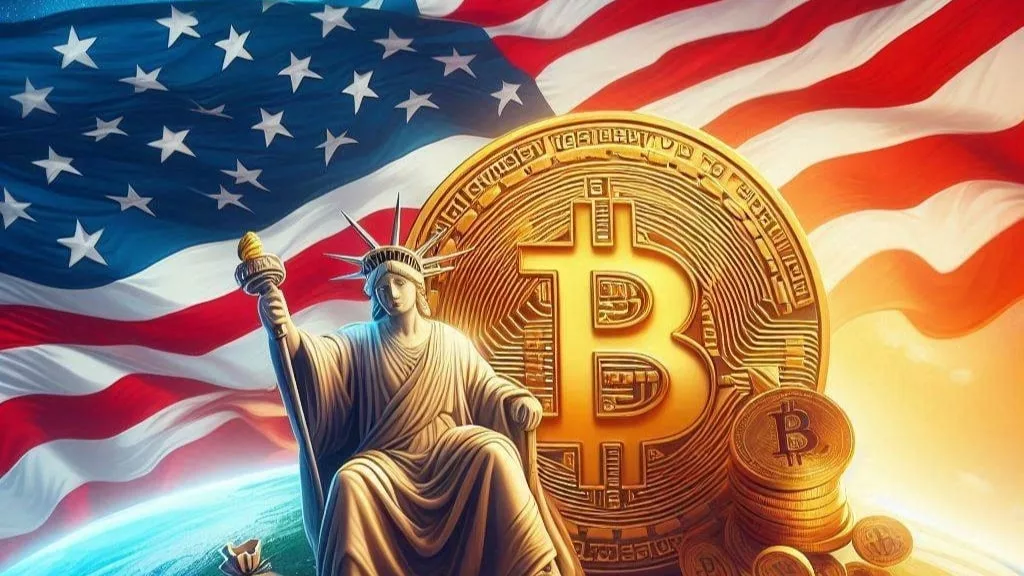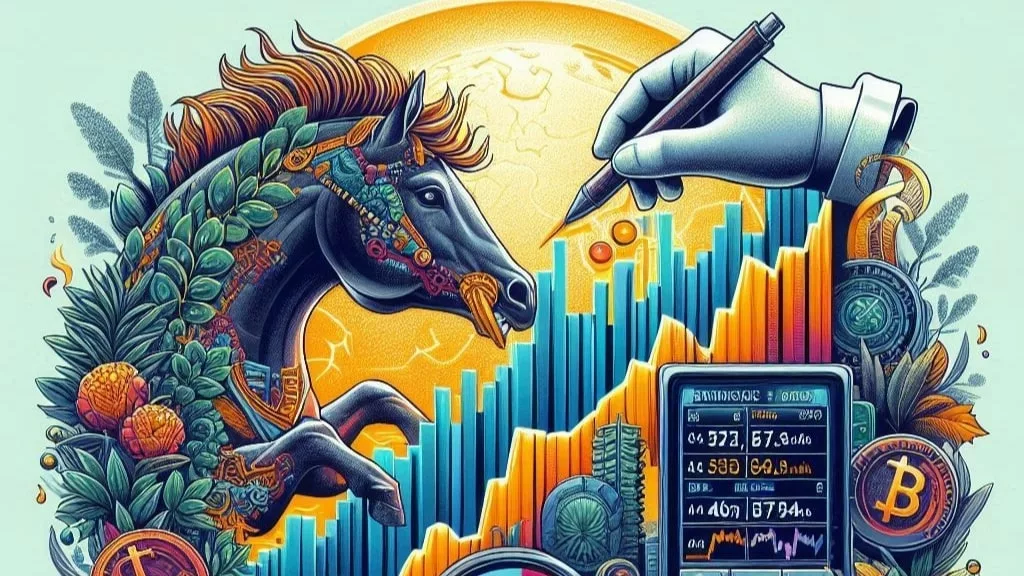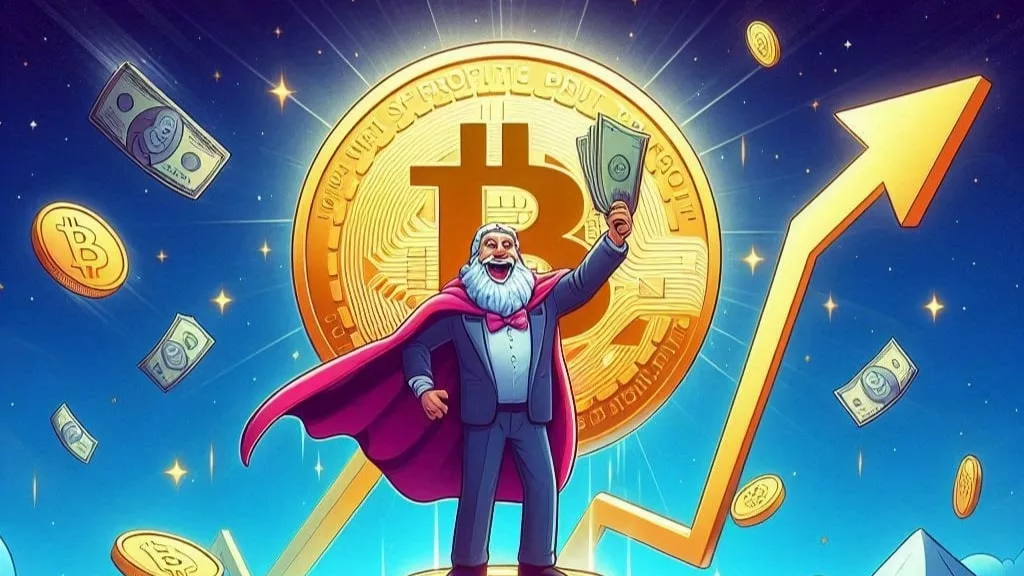
U.S. Senator Cynthia Lummis, often referred to as the “Crypto Queen,” has long been an advocate for Bitcoin and its potential to revolutionize the financial landscape. Recently, she put forward an ambitious idea: for the U.S. to create a Bitcoin reserve. According to Lummis, this strategic move could enhance America’s economic stability and position the country as a global leader in the crypto space. But is Bitcoin a stable enough asset for such a crucial role? Let’s explore her proposal and the challenges it might face.
Bitcoin vs. Gold: Can It Replace America’s Traditional Asset?
For decades, the U.S. has relied on gold to back the value of its currency, with over 8,000 tons of gold in reserve. This precious metal has long been viewed as a reliable store of value, largely due to its ability to maintain stable prices over time. As the world’s largest holder of gold, the U.S. has used its gold reserves as a hedge against inflation and a safeguard for the dollar’s value.
Bitcoin, however, is an entirely different story. The cryptocurrency is known for its extreme price volatility. In just one day, the price of Bitcoin can surge or plummet, making it far less predictable than gold. Senator Lummis’s proposal for a $200 billion Bitcoin reserve would be just a fraction of the U.S.’s gold reserves, but it raises the question: could Bitcoin ever offer the same reliability as gold?
Bitcoin’s volatility is a major hurdle in its potential to serve as a stable reserve asset. While it has garnered attention for its substantial price increases over the years, it has also seen sharp drops. For instance, Bitcoin’s price has dropped by over 50% in a matter of months during previous bear markets. Given this unpredictability, some critics argue that relying on Bitcoin to back the dollar could create more instability, rather than fostering economic security.
How Would the U.S. Start Buying Bitcoin?
If the U.S. were to build a Bitcoin reserve, the process could start with an executive order. Under the leadership of President Trump and Ohio Senator J.D. Vance, the government could bypass some of the traditional approval processes and begin purchasing Bitcoin directly. This would be similar to how the U.S. tapped into its emergency oil reserves in 2022 to alleviate rising gas prices. Treating Bitcoin as a “strategic asset” could allow the government to buy it in large quantities, potentially securing a reserve without the need for immediate congressional approval.
However, for such a reserve plan to become a permanent part of U.S. economic policy, Congress would likely need to step in. Lawmakers would have to pass legislation to fund Bitcoin purchases and secure long-term allocations. This process could take time, and convincing lawmakers—especially those who are skeptical about cryptocurrency—would likely be a difficult task. Some members of Congress may view Bitcoin as too risky or speculative, while others might worry about its environmental impact or its potential to be used for illicit activities.
Additionally, it’s important to note that the U.S. government already holds a significant amount of Bitcoin. As of now, the government owns 208,109 BTC, which is worth approximately $15.66 billion. These holdings primarily come from law enforcement seizures, with the government also holding other major cryptocurrencies seized from criminal cases. These assets are currently managed by the U.S. Marshals Service, but they are not part of a formal Bitcoin reserve plan.
The Roadblocks: Can Bitcoin Become a National Reserve?
Lummis’s idea of a Bitcoin reserve is bold, but it’s not without significant challenges. Bitcoin still carries a reputation for being highly volatile and speculative. Many critics argue that it doesn’t yet have the maturity or stability required for use as a reserve asset. With inflation and national debt still major concerns in the U.S., there’s a risk that adopting Bitcoin in such a way could expose the economy to unpredictable fluctuations.
Further complicating the matter is the fact that Bitcoin’s market is still relatively small compared to traditional assets like gold or U.S. Treasury bonds. In 2024, the total market cap of Bitcoin is estimated to be around $600 billion, compared to the over $11 trillion market cap of gold. Buying up Bitcoin at the scale Lummis suggests would put a significant strain on the market, potentially driving prices even higher and increasing volatility. The supply of Bitcoin is also limited to 21 million coins, so large-scale government purchases could exacerbate scarcity, further increasing volatility.
Additionally, Bitcoin’s use as a store of value is still up for debate. While many see Bitcoin as “digital gold,” others view it as a speculative investment rather than a reliable asset. Critics argue that the cryptocurrency is too new and untested to replace gold as a safe-haven asset, and its adoption as a reserve currency could lead to unforeseen economic consequences.
What’s Next for the Bitcoin Reserve Proposal?
While Lummis’s Bitcoin reserve proposal has generated significant attention, it is still in its early stages. The idea is certainly provocative, but it’s unclear whether it will gain enough traction within Congress to move forward. Given the volatility of Bitcoin and its controversial status as a financial asset, the proposal is likely to face fierce opposition from lawmakers who are concerned about the risks of cryptocurrency.
Nevertheless, the proposal marks an important moment in the ongoing conversation about the role of cryptocurrencies in the global economy. As Bitcoin continues to mature and gain institutional acceptance, it could eventually play a more significant role in the financial system. Whether that includes being part of a U.S. Bitcoin reserve remains to be seen, but it’s certainly something to watch in the coming years.




Get the latest Crypto & Blockchain News in your inbox.